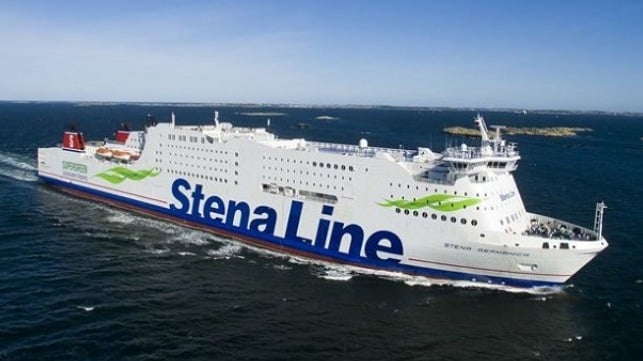Engineer Looking for Water Leak was Likely Electrocuted Aboard Stena Ferry

Swedish investigators now believe that an engineer working aboard a Stena ropax in Scandinavia likely died of electrocution and not natural causes as was initially assumed at the time of the death. In a newly released report, the Swedish Accident Investigation Authority speculates that the electrical installation work might have been faulty from when the vessel was new but went undiscovered because it did not impact the operation of the systems.
The death occurred aboard the Stena Germanica (51,837 gross tons), a ferry operating between Sweden and Germany and best known as the first commercial ship in the world retrofitted to run on methanol as its main fuel. The vessel which can carry 1,300 passengers and 300 cars was built in 2001 in Spain. It however has undergone major renovations in 2007 and again in 2010, when it took on its current name, and in 2015 when it began running on methanol.
The vessel was underway on June 27, 2022, when the engineer was found unconscious next to a ballast pump in the engine room. The engineer reportedly had been looking for a water leak. CPR was attempted without success and the reports assumed that the death was due to cardiac arrest or similar circumstances, which were listed as natural causes.
The investigation however identifies that about two weeks later, on July 14, another engineer also looking for the cause of a water leak at the ballast pump received a strong electrical shock. Stena hired an electrical company that came aboard the following day to investigate the problems in the electrical system and at the same time reported the incident to the police. They informed the authorities that the first incident which resulted in the death could have been an electrical accident.
Investigators reported that the second engineer had leaned forward to feel where the water was coming from when he received a strong electrical shock from a wet solenoid value. At the time, the second engineer was not aware that it was the same position where the first engineer had been discovered.
Several different errors caused the component to become energized according to the report. A gasket was missing and critically there was no protective grounding on the part. The incoming cables to the solenoid had also been changed which they determined meant that it was energized the entire time the pump was in operation. Because it was outside the ordinary isolated fault system, the problem was not detected. Further, because the value was operating no error messages were recorded.
The Swedish Accident Investigation Authority concluded that when the second engineer touched the components looking for the water leak and when he came in contact with the water, he was shocked. They speculate that the first engineer encountered a similar situation leading to his death.

that matters most
Get the latest maritime news delivered to your inbox daily.
The report recommends paying attention to the risks of improperly performed electrical work on board ships. It highlights that only people with the required knowledge of electricity and a ship’s special electrical system should be permitted to work on the systems.
They are also recommending that Stena review routines for training the crew on accident responses and shortening the time from the alarm till they reach the scene. They also recommend that Stena develop routines for consulting with shoreside medical services in the case of electrical shocks or electrocution aboard one of its ships.
